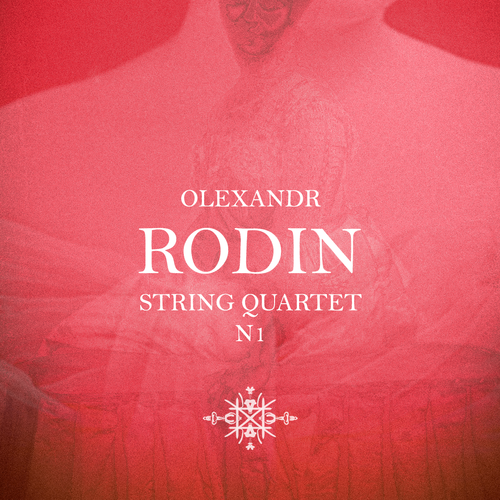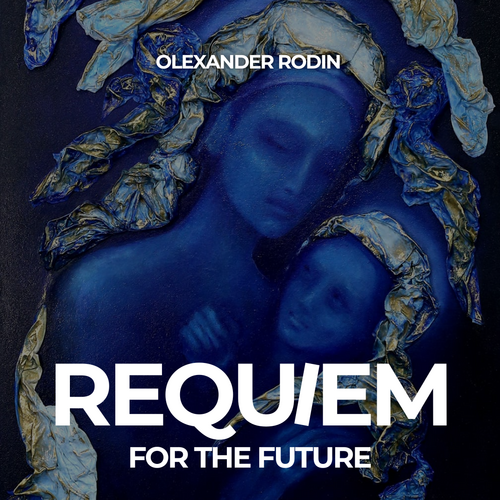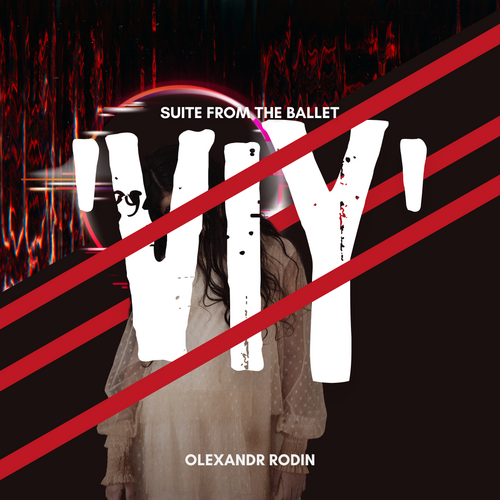Almashi Zoltan. Biography
Stefania Turkevych (1898-1977) was born in L’viv, one of the cultural epicenters of Galicia. During her lifetime, Galicia was part of the Austrian Empire, then Poland, then part of the Ukrainian Soviet Socialist Republic. This region bore the marks of Austrian, Hungarian, Lithuanian, Russian, and Polish influence and would soon witness the rise of the Soviet state. Turkevych’s father and grandfather were priests, and her mother was a pianist. Turkevych herself played piano, harp, and harmonium.1 Her prodigious talent led her to study in Vienna (1914-16; 1921-25), at the L’viv Conservatory (1918-19), and at the Prague Conservatory and the Ukrainian Free University in Prague (1930-34). Her early education was remarkably cosmopolitan.
Turkevych’s compositional language is unique.
Although one can hear the technical influence of Schoenberg and can detect certain expressionist tendencies, her music is generally quite lyrical, with occasional folk influence. This is typical of Turkevych’s style: she walks the line between tonality and expressionism—especially in her art songs—occasionally incorporating elements of pointillism and impressionism.
Turkevych displayed an early proclivity for composition. During her time at the L’viv Conservatory, she composed a series of liturgical works for the choir at St. George’s Cathedral, the mother church of the Ukrainian Greek Catholic Church.6 Shortly after marrying the rising Ukrainian-German expressionist painter Robert Lisowski in 1925,7 Turkevych moved to Berlin and studied composition privately with Arnold Schoenberg (1874-1951) and Franz Shreker (1878-1934). Turkevych earned a PhD in Musicology from the Ukrainian Free University in Prague in 1934, becoming the first woman from Galicia to receive a doctorate. Her boldly nationalistic dissertation was entitled “Ukrainian Folklore in Russian Operas.” She is now considered Ukraine’s first female composer.8 Immediately after receiving her PhD, Turkevych returned to L’viv, where she taught at the L’viv National Music Academy (sometimes called the L’viv Conservatory). She maintained this position until 1939, when she began working as a coach and accompanist at the L’viv National Opera alongside her sister, Irina Martynec (an opera singer). It was here that the two sisters met prima ballerina Daria NyzankiwskaSnihurowycz, who would become an important co-collaborator both in Ukraine and on Canadian soil more than 30 years later (for the premiere of Turkevych’s 1969 operaballet, Серце Оксани).
Rodin Oleksander. Biography
Rodin Oleksandr (born 1975, Piddobryanka, Belarus) is a contemporary Ukrainian composer, pianist, and actor.
In 1994, he graduated as a pianist from the Revutsky Chernihiv Music College. In 2001, he completed his studies at the Odessa State Conservatory named after A. V. Nezhdanova (now the Odessa National Nezhdanova Academy of Music). In the early 2000s, he moved to Kyiv. Since 2005, he has been a member of the National Union of Composers of Ukraine and a laureate of numerous awards and prizes. His first experience in composition came during his time at the music college when he wrote music for a dramatic performance. While studying at the Conservatory, Rodin independently mastered the art of composition, and his first orchestral work was performed by the Odesa conductor Ihor Shavruk. However, according to the composer himself, he never planned to pursue an academic education in composition.
In 1994, he graduated as a pianist from the Revutsky Chernihiv Music College. In 2001, he completed his studies at the Odessa State Conservatory named after A. V. Nezhdanova (now the Odessa National Nezhdanova Academy of Music). In the early 2000s, he moved to Kyiv. Since 2005, he has been a member of the National Union of Composers of Ukraine and a laureate of numerous awards and prizes. His first experience in composition came during his time at the music college when he wrote music for a dramatic performance. While studying at the Conservatory, Rodin independently mastered the art of composition, and his first orchestral work was performed by the Odesa conductor Ihor Shavruk. However, according to the composer himself, he never planned to pursue an academic education in composition.
The style in which Rodin works can be broadly defined as neo-academic. In his music, the composer tends to follow the established traditions of modern Ukrainian academic music while blending them with the modern musical "language" of the 21st century. His music is characterized by a paradoxical combination of pure harmony and dissonance, lyrical and dramatic moments, melodicism and aleatoric techniques, impressionism and expressionism.
Rodin's creative portfolio includes works of various genres: symphonic, choral, chamber-instrumental music, ballets, and opera.
Among his major works are:
Rodin has also written numerous arrangements of Ukrainian folk songs, paraphrases of classical works, as well as music for dramatic performances, films, and TV series.
Among his major works are:
- Requiem for symphony orchestra, choir, and soloists
- The Seven Last Words of Jesus on the Cross for symphony orchestra
- The symphonic cycle The Flea Market
- Stabat Mater for soprano, mezzo-soprano, and string orchestra
- Love Death, a cantata based on poems by Charles Baudelaire for soprano and symphony orchestra
- Panakhyda (Memorial Service) for mixed choir
- Song to the Most Holy Theotokos for mixed choir
- Missa Luminosa for soprano and string orchestra
- The Book of Dreams for strings and percussion
- The piano cycle Sketches for Piano
- He is also the author of several ballets, including Aladdin, The Seasons, Upstream, The Viy, and The Vision of the Rose, created in collaboration with the Kyiv Municipal Academic Opera and Ballet Theater for Children and Youth, as well as the Ukrainian modern dance theater Kyiv Modern-Ballet. Additionally, he composed the opera Kateryna, based on works by Taras Shevchenko.
Rodin has also written numerous arrangements of Ukrainian folk songs, paraphrases of classical works, as well as music for dramatic performances, films, and TV series.
The 1940s through the 1970s represent Turkevych’s most prolific compositional period. Her Ukrainian-language operas from this era are particularly worthy of note— among them Серце Оксани (The Heart of Oksana), which was commissioned in 1969 by the Winnipeg division of Prosvita. This organization, founded in late nineteenth-century Ukraine to promote Ukrainian culture through literature, scholarship, and the arts, later took root in Canada
Turkevych displayed an early proclivity for composition. During her time at the L’viv Conservatory, she composed a series of liturgical works for the choir at St. George’s Cathedral, the mother church of the Ukrainian Greek Catholic Church.6 Shortly after marrying the rising Ukrainian-German expressionist painter Robert Lisowski in 1925,7 Turkevych moved to Berlin and studied composition privately with Arnold Schoenberg (1874-1951) and Franz Shreker (1878-1934). Turkevych earned a PhD in Musicology from the Ukrainian Free University in Prague in 1934, becoming the first woman from Galicia to receive a doctorate. Her boldly nationalistic dissertation was entitled “Ukrainian Folklore in Russian Operas.” She is now considered Ukraine’s first female composer.8 Immediately after receiving her PhD, Turkevych returned to L’viv, where she taught at the L’viv National Music Academy (sometimes called the L’viv Conservatory). She maintained this position until 1939, when she began working as a coach and accompanist at the L’viv National Opera alongside her sister, Irina Martynec (an opera singer). It was here that the two sisters met prima ballerina Daria NyzankiwskaSnihurowycz, who would become an important co-collaborator both in Ukraine and on Canadian soil more than 30 years later (for the premiere of Turkevych’s 1969 operaballet, Серце Оксани).
Олександр Родін. Біографія
Олександр Леонідович Родін (1975, с. Піддобрянка, Білорусь) - сучасний український композитор, піаніст, актор.
В 1994 р. закінчив як піаніст Чернігівське музичне училище імені Л. М. Ревуцького (1994), в 2001 р. Одеську державну консерваторію імені А. В. Нежданової (тепер Одеська національна музична академія ім. А. В. Нежданової). На початку 2000-х переїхав до Києва. Від 2005 р. Член Національної спілки композиторів України. Лауреат багаточисельних премій та нагород. Перший композиторський досвід отримав у музичному училищі, коли написав музику до драматичної вистави. Навчаючись в Консерваторії О. Родін самотужки почав опановувати мистецтво композиції, а його перший оркестровий твір виконав одеський диригент Ігор Шаврук. Однак, на думку О. Родіна, він ніколи не планував отримати академічну освіту як композитор.
В 1994 р. закінчив як піаніст Чернігівське музичне училище імені Л. М. Ревуцького (1994), в 2001 р. Одеську державну консерваторію імені А. В. Нежданової (тепер Одеська національна музична академія ім. А. В. Нежданової). На початку 2000-х переїхав до Києва. Від 2005 р. Член Національної спілки композиторів України. Лауреат багаточисельних премій та нагород. Перший композиторський досвід отримав у музичному училищі, коли написав музику до драматичної вистави. Навчаючись в Консерваторії О. Родін самотужки почав опановувати мистецтво композиції, а його перший оркестровий твір виконав одеський диригент Ігор Шаврук. Однак, на думку О. Родіна, він ніколи не планував отримати академічну освіту як композитор.
Стиль в якому працює композитор, умовно можна окреслити як неоакадемічний. О. Родін у своїй музиці проявляє схильність наслідувати усталені канони сучасної української академічної музики та поєднувати їх з модерним музичним «словником» ХХІ ст. Музиці композитора властиве парадоксальне поєднання чистої гармонії і дисонансу, ліричних та драматичних моментів, мелодизму й алеаторики, імпресіонізму з експресіонізмом.
У творчому доробку композитора твори різноманітних жанрів: симфонічна, хорова, камерно-інструментальна музика, балети, опера. Серед основних творів: «Requiem» для симфонічного оркестру, хору та солістів, «Сім останніх слів Ісуса на Хресті» для симфонічного оркестру, симфонічний цикл «Барахолка», «Stabat Mater» для сопрано, мецо-сопрано та струнного оркестру, «Любов Смерть» кантата на вірші Ш. Бодлера для сопрано та симфонічного оркестру, «Панахида» для мішаного хору, «Піснь Всесвятій Богородиці» для мішаного хору, «Missa Luminosa» для сопрано та струнного, «Книга сновидінь» для струнних та ударних, цикл «Ескізи для фортепіано» та ін. Автор балетів: «Алладін», та «Пори року», «Вгору по річці», «Вій», «Видіння Рози», які зреалізував у творчій співпраці з Київським муніципальним академічним театром опери і балету для дітей та юнацтва та українським театром сучасної хореографії «Київ модерн-балет». Написав оперу «Катерина» за творами Т. Г. Шевченка. Автор численних обробок українських народних пісень, парафраз класичних творів, музики до драматичних вистав, фільмів та серіалів.
Над текстом працювали експертки Галицького Музичного Товариства: Любов Кияновська, Тереса Мазепа, Наталія Сиротинська
Література:
Поліщук Т. Поліфонія почуттів // День. 2014. №109.
Поліщук Т. Маніфест непокори самому факту смерті //День. 2017. № 211.
Дужак B. Олександр Родін: «Сюжетами Гоголя я натхненний з раннього дитинства!». URL https://www.kyivmusiclabs.com/2019/10/blog-post_20.html?m=1&fbclid=IwAR1sxWirisO1PuluChLxkNiL2w5U6JCwxGFgnEW18MGx-ak8nrr0ZDLjtyM
Над текстом працювали експертки Галицького Музичного Товариства: Любов Кияновська, Тереса Мазепа, Наталія Сиротинська
Література:
Поліщук Т. Поліфонія почуттів // День. 2014. №109.
Поліщук Т. Маніфест непокори самому факту смерті //День. 2017. № 211.
Дужак B. Олександр Родін: «Сюжетами Гоголя я натхненний з раннього дитинства!». URL https://www.kyivmusiclabs.com/2019/10/blog-post_20.html?m=1&fbclid=IwAR1sxWirisO1PuluChLxkNiL2w5U6JCwxGFgnEW18MGx-ak8nrr0ZDLjtyM



